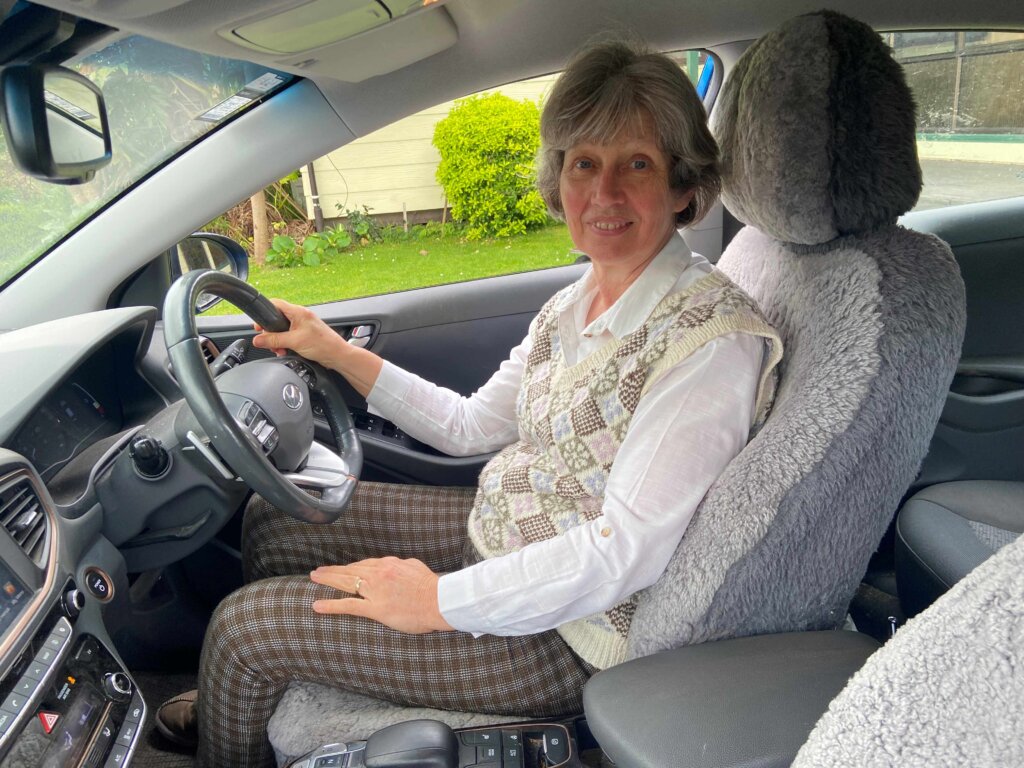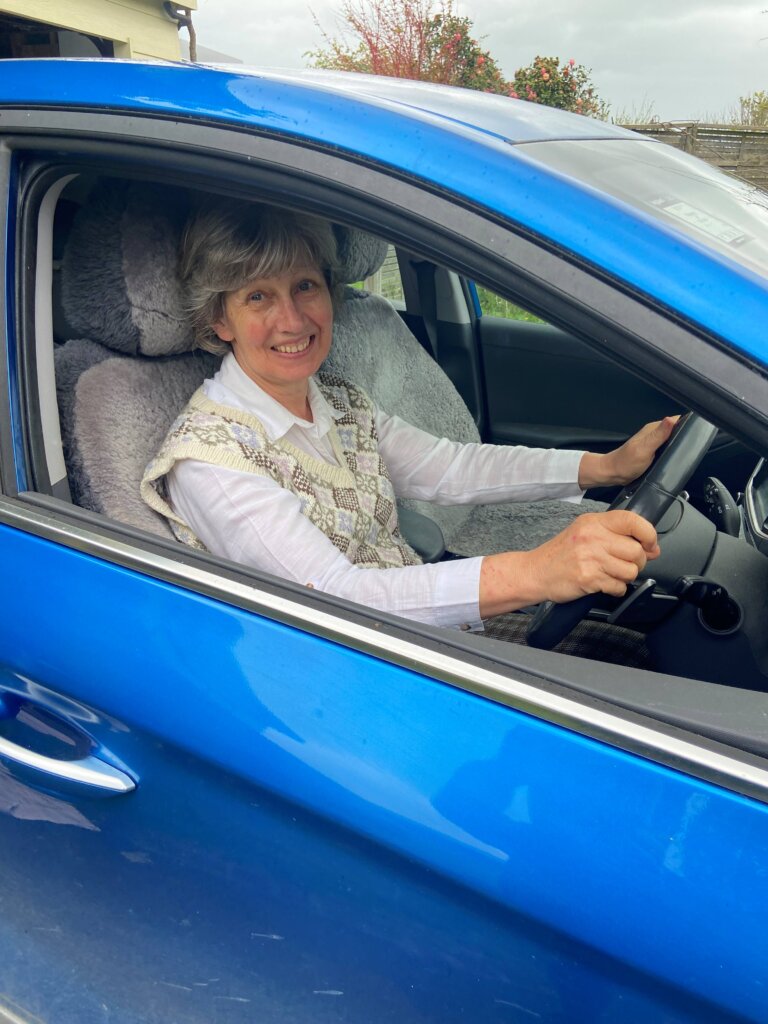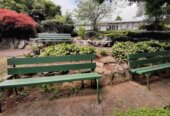Clare St Pierre has presented a plan to reduce the cost to people of car trips.

Pirongia’s Clare St Pierre is leading a rideshare initiative.
Speaking at the public forum in a personal capacity at September’s Te Awamutu and Kihikihi Community Board meeting, the Waipā District Council member for the Pirongia-Kakepuku Ward introduced a, community-focused rideshare model.
“We spend $26.1 billion annually on private vehicle travel,” St Pierre said. “There must be a better way to lower these costs, reduce congestion, cut emissions, and enhance community connectedness.”
The proposed model explained to the board allows private vehicle owners to share their trips with others heading to similar destinations, sharing the cost of the ride. Unlike traditional rideshare services, any surplus from the scheme will be reinvested into the community, with users voting on which projects or organisations receive funding.
This approach, St Pierre said, aimed to reduce the running costs of private vehicles without turning drivers into taxi services. The cost of rides will be lower than commercial fares and encourage use for commuting, school runs, and other trips. She said the scheme could earn carbon credits for the community.

Ange Holt
For Te Awamutu, with a population of 14,000, regular users could save approximately $900 annually on travel costs, St Pierre said. If just 10 per cent of the population used ridesharing for 20 per cent of their trips, the community could generate over $400,000 per year – is based on 11,325 private vehicles costing an average of $5800 to run a year.
So why hasn’t this model been developed before?
“There’s a dominant model prevailing in Western society that’s focussed on individual convenience and profit maximisation that is completely blind to pollution or what is called externalities,” St Pierre said. “Sorry, but it’s been designed by men.”
“My research shows that disrupting this model is an exciting possibility that would redefine the way we use transport, drastically reduce personal costs, generate fundings for our communities from the savings, and it’s based on relationships.”
Research from Australian university students highlight that women are three times more likely to use rideshare services than men, with safety being a critical concern. The new model would emphasise relationship connections to ensure personal safety, she said.
A mobile app, developed for St Pierre by Kings Own Institute students in Sydney, is set to launch by the end of the year. Pierre developed a relationship with the institute when she was chair of Pirongia Te Aroaro o Kahu Restoration Society.
A small-scale pilot is being considered as proof of concept and St Pierre is looking for participants for a focus group to identify barriers to use, critical success factors and necessary incentives.
“Could the community board help me find these people?” St Pierre asked. “I’m looking for a group of people, preferably women, because they are likely to be the ones who use it, to go over in detail how it would work and what would stop them from using it.”
Community board chair Ange Holt offered her help.
“What a great idea. I mean wow. Just the level of thought you have put into it. It’s not just simply a rideshare, it’s the bigger picture with the savings and bringing money back to our community. It’s just so generous as well. Aren’t we lucky to have such an awesome idea here with us?”

Pirongia’s Clare St Pierre is leading a rideshare initiative.








